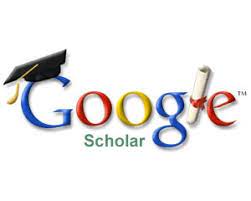SOCIOCULTURAL DIMENSIONS OF SPOKEN LANGUAGE USE IN EDUCATIONAL CONTEXTS: A MICRO-ETHNOGRAPHIC ANALYSIS
Keywords:
Sociocultural discourse analysis; Spoken language in education; Pragmatic competence; Institutional communication; Multilingual classroomsAbstract
This study explores the sociocultural dimensions of spoken language use in educational contexts through a micro-ethnographic analysis of three naturally occurring speech events in a tertiary institution. Grounded in sociocultural discourse analysis and systemic functional linguistics, the research examines how cultural norms, institutional expectations, and power relations shape classroom talk. Data were collected via unobtrusive naturalistic observation and analyzed using frameworks by Mercer and Halliday to interpret the interplay between linguistic form and social function. Findings reveal that indirectness, pragmatic misalignment, and minimalist engagement reflect speakers’ cultural backgrounds, identity negotiations, and stages of language acquisition. The study underscores spoken discourse as a vehicle for enacting identity, asserting agency, and navigating institutional hierarchies, particularly in multicultural and multilingual settings. Pedagogical implications include the need for enhanced pragmatic instruction, awareness of discourse asymmetries, and inclusive communication strategies in language education. This work contributes to our understanding of how spoken interactions function as sociocultural acts within educational environments
References
Alguwaidi, A., Alrashidi, K., Almutairi, S., & Alqahtani, A. (2014). Power and politeness in school board meetings: A critical discourse analysis study. Proceedings of SOCIOINT14- International Conference on Social Sciences and Humanities, 8-10 September 2014- Istanbul, Turkey. https://www.ocerints.org/Socioint14_e-publication/papers/279.pdf
Bustrum, B. J. (2001). Language and power in the ESL classroom. Master Thesis, Grand Valley State University.
https://scholarworks.gvsu.edu/cgi/viewcontent.cgi?article=1559&context=theses
Castelnuovo, A. (2015). A sociocultural study of intercultural discourse: Empirical research on Italian adolescent pupils. Doctoral thesis, Institute of Education, University of London. https://discovery.ucl.ac.uk/id/eprint/10020607/
Chernova, V. A. (2022). School discourse as a source of knowledge about socio-cultural and educational traditions. Vestnik of North-Eastern Federal University, 85(20). https://doi.org/10.25587/svfu.2022.85.20.010
Forman, E. A., & McCormick, D. E. (1995). Discourse analysis: A sociocultural perspective. Remedial and Special Education, 16(3), 150–158. https://doi.org/10.1177/074193259501600304
Gee, J. P. (2015). Social linguistics and literacies: Ideology in discourses (5th edition). Falmer Press. https://books.ms/main/33600585A7725D31F0C2390C5DA97AB2
Gotti, M. (2012). Cross-cultural aspects of academic discourse. Brno Studies in English, 38(2), 59–78. https://doi.org/10.5817/BSE2012-2-4
Green, J. L., & Kelly, G. J. (2018). Theory and methods for sociocultural research in science and engineering education. Routledge. https://doi.org/10.4324/9781351139922
Halliday, M. A. K. (1994). Language as social semiotic. In J. Maybin (Ed.), Language and literacy in social practice (pp. 23–43). Multilingual Matters.
Hymes, D. (1964). Introduction: Toward Ethnographies of Communication. American Anthropologist, 66(6), 1–34. http://www.jstor.org/stable/668159
Johnson, M., & Mercer, N. (2019). Using sociocultural discourse analysis to analyse professional discourse. Learning, Culture and Social Interaction, 21, 100331. https://doi.org/10.1016/j.lcsi.2019.04.003
Kochetkov, M. V., & Kovalevich, I. A. (2020). Specific features of educational and pedagogical discourse in the context of anthropological challenges: Socio-cultural approach. Journal of Siberian Federal University, 13(2), 268–277. https://doi.org/10.17516/1997-1370-0578
Mercer, N. (2007). Sociocultural discourse analysis: Analyzing classroom talk as a social mode of thinking. Journal of Applied Linguistics, 1(2), 137–168. https://utppublishing.com/doi/epdf/10.1558/japl.v1.i2.107
Zhaksybayeva, A. (2023). Peculiarities of educational discourse. Pedagogy and Teaching Methods , 4 (65) , 28-35. https://doi.org/10.47344/sdu20bulletin.v65i4.1083









